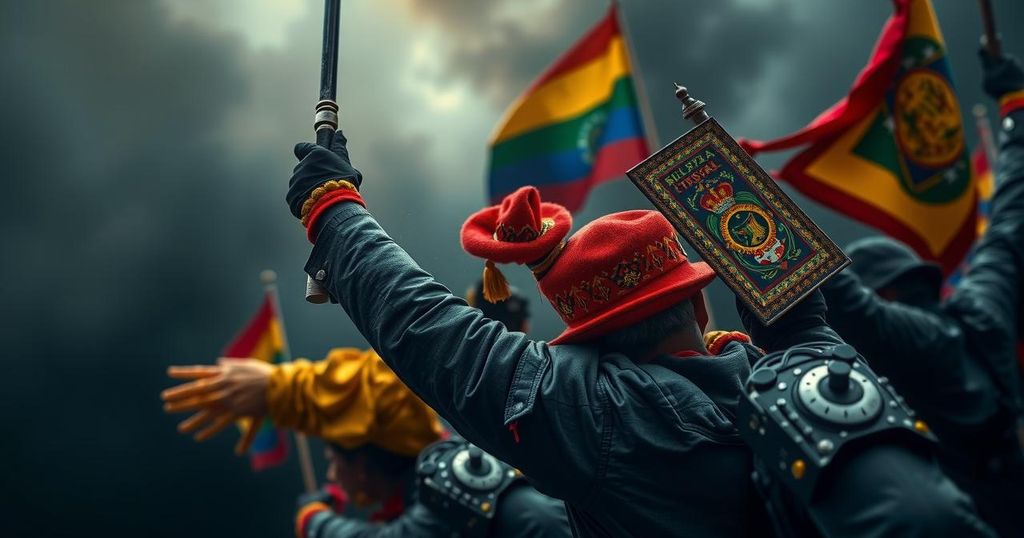Bolivia’s Political Struggle: Morales’ Decline and Its Implications for 2025 Elections

The ongoing power struggle between President Luis Arce and former President Evo Morales has plunged Bolivia into political turmoil. Morales’s declining influence and internal divisions within the MAS party present opportunities for the opposition ahead of the 2025 elections. However, pressing economic challenges remain, foreshadowing a difficult path for any potential new administration.
Bolivia is currently undergoing a significant power struggle between President Luis Arce and former President Evo Morales, both leaders of the ruling party, the Movimiento al Socialismo (MAS). The political tension erupted into violence, marked by road blockades, confrontations with police, and occupation of military posts. Morales has accused Arce of a failed assassination attempt against him, a claim the government has denied. This turmoil has implications for the control of the MAS as the nation approaches the August 2025 elections. Historically, Morales has played a pivotal role in Bolivian politics since the 1990s, enjoying a 14-year presidency that solidified his influence. However, a series of events beginning with election fraud allegations in 2019 led to his resignation and a temporary exile. After a tumultuous transitional government, Arce’s MAS administration returned to power in 2020. Despite initial camaraderie, tensions have escalated into overt rivalry with accusations on both sides. As protests have persisted, it became evident that Morales’s influence had diminished; police presence successfully dismantled significant roadblockades. Morales has resorted to a hunger strike in an effort to initiate discussions regarding his legal issues and economic strategies, though his position appears increasingly vulnerable. His actions have alienated traditional supporters, notably transporters and merchants affected by the unrest. In light of this mounting pressure on Morales, the opposition—long-standing rivals of MAS—may find an opportunity to challenge for power in the upcoming elections. Nevertheless, the potential new government will likely confront severe economic difficulties, including high poverty levels, fuel deficits, and challenges in economic recovery, suggesting a daunting path ahead. Notably, the current crisis within MAS and Morales’ declining stature could signal a political shift capable of revitalizing Bolivia’s democratic framework and addressing essential issues, including environmental reform and judicial alterations. While the opposition stands on the cusp of opportunity, the delicate situation warrants careful consideration of the complex landscape in Bolivian politics.
Bolivia has a complex political history characterized by significant social and economic challenges. Former President Evo Morales served from 2006 until his resignation in 2019 amidst widespread protests over alleged election fraud. His departure marked a turbulent transitional phase that eventually saw Luis Arce, Morales’s former finance minister, return the MAS party to power in 2020. The dynamics within MAS have recently shifted, revealing tensions between Morales and Arce, as well as a decline in Morales’s influence, presenting unprecedented challenges for both leaders and the nation’s political future.
In conclusion, Bolivia’s political landscape is poised for a significant transformation as internal conflicts within the MAS party expose vulnerabilities in Morales’s long-standing leadership. As the 2025 elections approach, the weakened state of Morales, coupled with economic difficulties, may allow the opposition to gain a foothold. Nonetheless, any new government must navigate a precarious economic environment and public sentiment to effectively address pressing issues threatening Bolivia’s stability and democracy.
Original Source: www.americasquarterly.org







